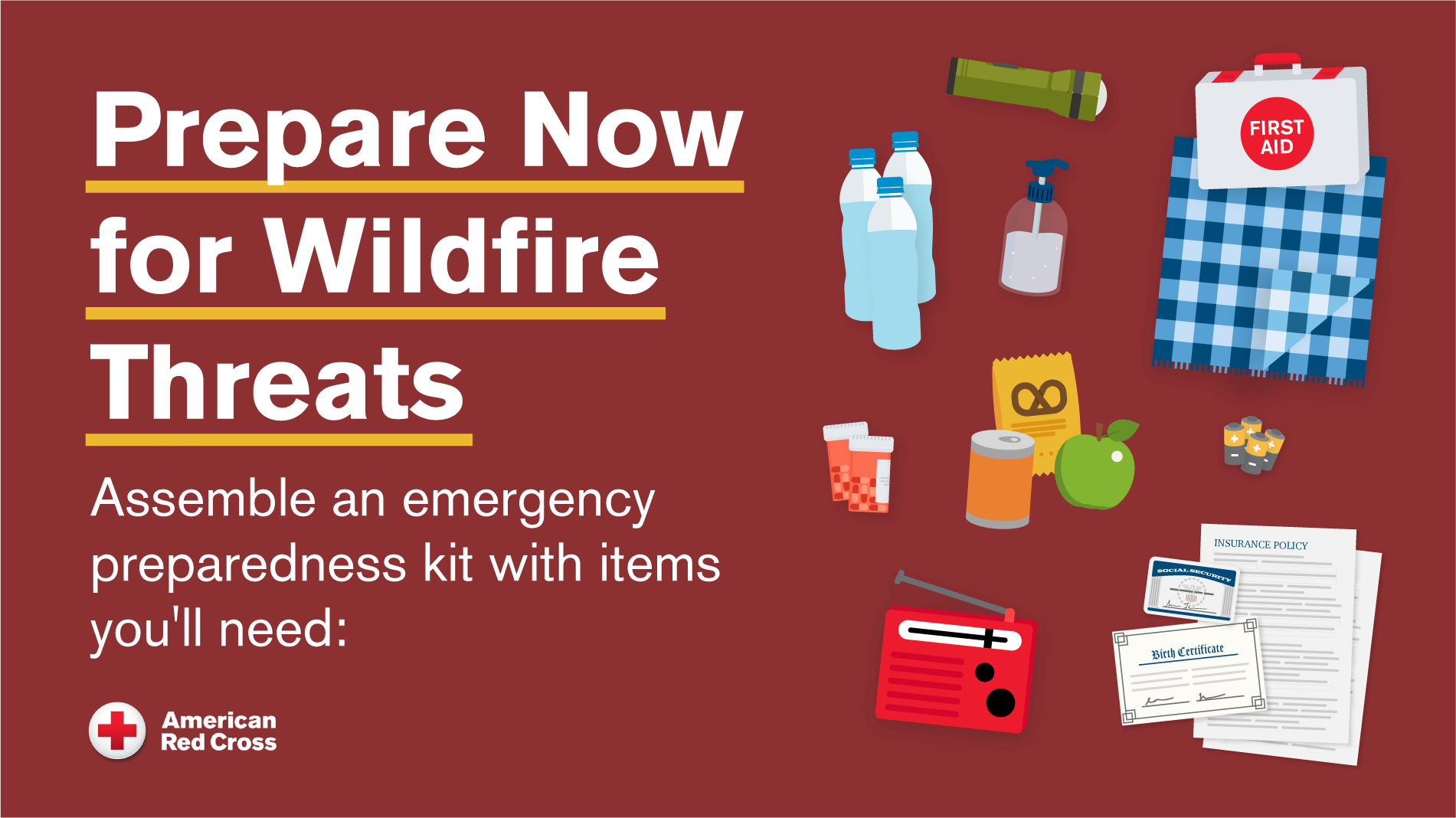People cause 85% of wildfires by burning debris, using equipment improperly, discarding cigarettes carelessly, leaving campfires unattended or intentionally setting a fire. To help prevent wildfires, follow these tips:
- Don’t drive your vehicle onto dry grass or brush. Hot components under your vehicle can spark fires.
- Use equipment responsibly. Lawn mowers, chain saws, tractors and trimmers can all spark a wildfire.
- Use caution any time you use fire. Dispose of charcoal briquettes and fireplace ashes properly, never leave any outdoor fire unattended, and make sure that outdoor fires are fully extinguished before leaving the area.
- If residential debris burning is allowed — use caution. After obtaining any necessary permits, ensure that burning is. not currently restricted in your area.
- Store combustible or flammable materials in approved safety containers away from the house.
BEFORE A WILDFIRE Follow these easy steps to help make sure your family is prepared to either evacuate or shelter in place.
- Create an evacuation plan. If you already have a plan, update and it and review with family members so everyone knows what to do if an emergency occurs.
- Build an emergency kit. If you already have a disaster kit, now is the time make sure the food and water is still okay to consume and that copies of important documents are up to date.
- Be informed. Find out how local officials will contact you during a wildfire emergency and how you will get important information, such as evacuation orders.
- Download the free Red Cross Emergency app to help keep you and your loved ones safe with real-time alerts, open Red Cross shelter locations and safety advice on wildfires and other emergencies.
WILDFIRE SAFETY Have access to alerts and notifications so that you can monitor conditions and receive instructions from local officials, even during a power outage.
- Keep track of fires near you so you can be ready to evacuate quickly. You may have only minutes to get out.
- Register to receive any free emergency alerts from your community. Understand your community’s plan to notify individuals with disabilities.
- Purchase a battery-powered radio to receive information from local authorities during a power outage.
- Find an outdoor water source such as a pond, well, even a swimming pool, and have a hose that can reach any area of your property.
- Create a fire-resistant zone free of leaves, debris or flammable materials for at least 30 feet out from your home.
- Regularly clean roofs and gutters.
- Make sure driveway entrances and your house number are clearly marked so fire vehicles can get to your home.
- Designate a room that can be closed off from outside air. Close all doors and windows. Set up a portable air cleaner to keep indoor pollution levels low when smoky conditions exist.
- Use fire-resistant materials to build, renovate or make repairs.
- Post emergency phone numbers by every phone in your house and make sure everyone has those numbers in their cell phones.
IF YOU HAVE TO LEAVE YOUR NEIGHBORHOOD, be prepared to evacuate at a moment’s notice and obey all evacuation orders from officials. Follow these steps (if time allows):
- Shut all windows and doors. Remove flammable window shades, curtains and close metal shutters.
- Move flammable furniture to the center of the room, away from windows and doors.
- Shut off gas at the meter; turn off pilot lights. Shut off the air conditioning.
- Gather up flammable items from the exterior of the house and bring them inside (patio furniture, toys, trash cans).
- Turn off propane tanks. Move propane BBQ appliances away from structures.
- Don’t leave sprinklers on or water running, they can affect critical water pressure.
- Back your loaded car into the driveway and keep all doors and windows closed.
- Ensure your emergency supplies kit is in your vehicle.
- Locate your pets and take them with you.












